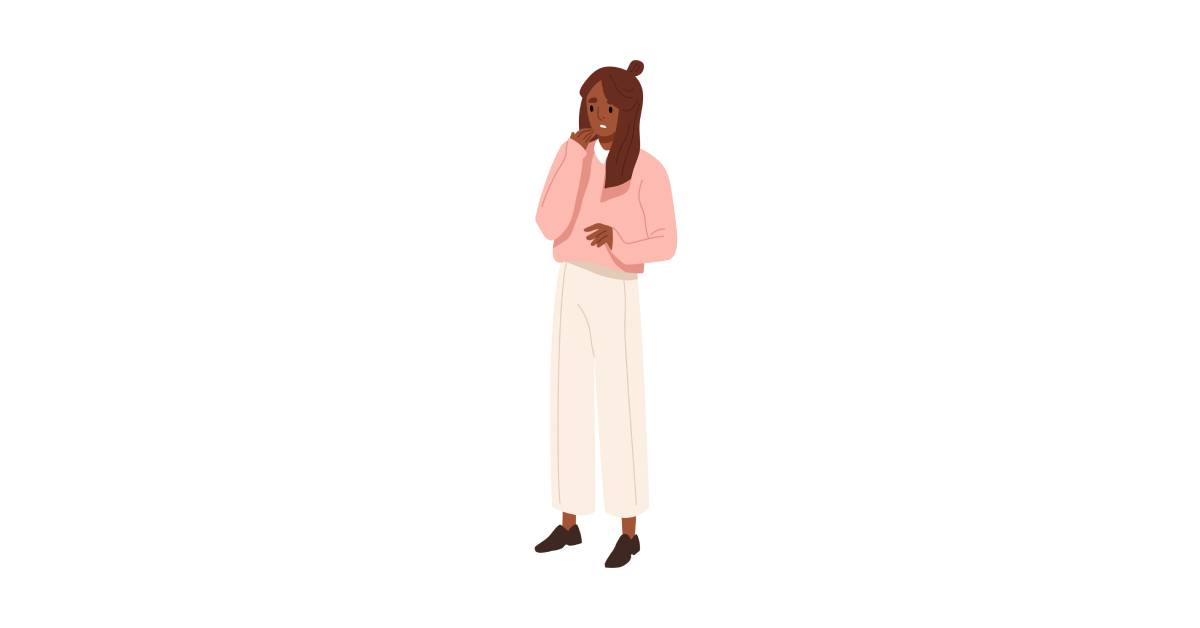Anxiety disorders are the most common mental health conditions in the United States, affecting over 40 million adults. Of those, a disproportionate number are minorities. While there is no clear singular cause of anxiety disorders, contributing factors like chronic stressors are consistently found in these groups. Poverty, social marginalization, and low access to quality healthcare and food frame the lives of many minorities. And while these difficulties are not a guaranteed recipe for anxiety disorders, they are likely a large portion of what enhances their vulnerability.
What Is an Anxiety Disorder?
An anxiety disorder is a mental health condition characterized by persistent and excessive worry about everyday situations that are not always in your control.
Anxiety disorders are different from normal anxiety or stress, which everyone experiences at some point in their lives. For people with anxiety disorders, the anxiety does not go away and worsens over time.
While there are many different types of anxieties that fall into many different categories, some of the most common anxiety disorders include:
Generalized Anxiety Disorder (GAD)
An excessive worry about everyday things. People with GAD often have a hard time controlling their worry and may feel anxious about several different things, including:
- Work
- School
- Health
- Finances
People with GAD often feel like they are unable to control their worry, and it interferes with their daily lives, leading to depression that often accompanies GAD. GAD affects over 6 million adults in the United States.
Panic Disorder
Panic disorder is characterized by frequent and unexpected panic attacks. A panic attack is a sudden period of intense fear or discomfort that can include:
- An excessively elevated heart rate
- Sweating
- Shaking
- Shortness of breath
People with panic disorder often fear having another panic attack and may avoid places or situations where they think an attack could happen.
Social Anxiety Disorder (SAD)
Also known as social phobia, SAD is an intense fear of being judged by others or embarrassed in social situations. Common symptoms of SAD include:
- Avoiding social situations
- Feeling anxious when meeting new people
- Intense worry about what others think of you
Suffering from SAD often feels like you are being watched or evaluated by others and may cause you to avoid social situations. SAD is the second-most common anxiety disorder, only behind specific phobias grouped together and affects over 15 million adults in the United States.
Obsessive-Compulsive Disorder (OCD)
OCD is characterized by the occurrence of intrusive and unwanted thoughts (obsessions) lead to repetitive behaviors (compulsions). People with OCD often have obsessions about:
- Germs & contamination
- Small or insignificant worries
- Order and symmetry
People with OCD often need to wash their hands constantly, check things repeatedly, or arrange things in a certain way. OCD can be very debilitating and significantly interfere with a person’s quality of life.
While these anxiety disorders are some of the more common ones, many others exist. Anxiety disorders are often accompanied by other mental health conditions, such as depression.
Why Are Anxiety Disorders More Common in Minorities?
Assessing the cause behind the disproportionate occurrence of anxiety orders in minorities can be difficult because there isn’t just one answer. Anxiety disorders are often caused by a combination of genetic and environmental factors.
Some studies have shown that anxiety disorders are more common in minorities because of the increased exposure to trauma and stress. Research shows that minority groups are more likely to experience:
Poverty
Poverty can be a major stressor and can lead to anxiety by causing financial, housing, and food insecurity. Many minorities don’t have the funds to access the health care they need to help battle anxiety disorders.
Discrimination
Discrimination causes feelings of isolation, exclusion, and rejection. This can lead to anxiety, depression, and other mental health conditions.
Violence
Exposure to violence can cause post-traumatic stress disorder (PTSD), especially in young kids or teenagers. This leads to higher rates of anxiety disorders among many minorities.
All of these factors can lead to increased levels of anxiety.
How Do We Reduce the Number of Anxiety Disorders in Minority Groups?
Recognizing there is a problem is the first step to solving it. Under-representation of minorities is a key reason why many problems still exist despite being largely solved for the majority.
While we don’t have all the answers, a few basic things can help reduce the number of anxiety disorders that many minorities are suffering from.
Providing More Mental Health Services in Underserved Communities
This is probably the fastest way to solve many anxiety issues. By providing good resources for mental health in underserved and poor communities, we can help many struggling people.
Educating People on Why Mental Health Is Important
Helping people understand their struggles and letting them know they are not alone can be extremely enlightening and euphoric for someone suffering from an anxiety disorder.
Making Mental Health Education More Inclusive
To make sure everyone has the same opportunities, we need to make sure our mental health education includes all cultures and minorities.
Providing Treatment Plans and Other Medical Advice That Is Culturally Competent
When we understand the unique needs of different cultures, we can better provide care that meets those needs. From social groups talking about anxiety disorders to ensuring traditional medicine and alternate forms of help, like ketamine infusions, are available to everyone.
By providing mental health services, education, and culturally competent care, we can help reduce the number of people suffering from anxiety disorders.
Restoring Wellness Solutions Provides Support for Everyone
At Restoring Wellness Solutions, we look to end the stigma behind many mental and physical health disorders. We are expertly equipped to help people suffering from things like anxiety disorders. Our expert team of technicians is eager to sit down with you or your loved one and create a treatment plan that is right for them. Contact us today to get started on your journey to wellness!






